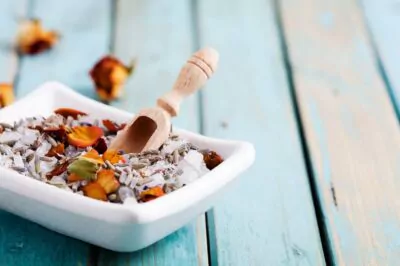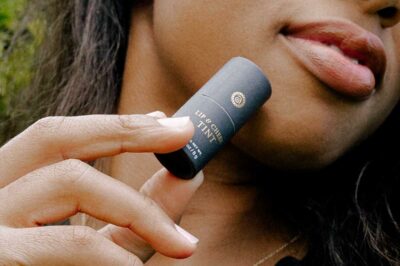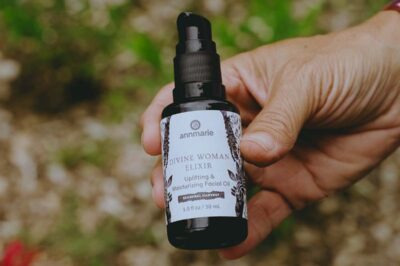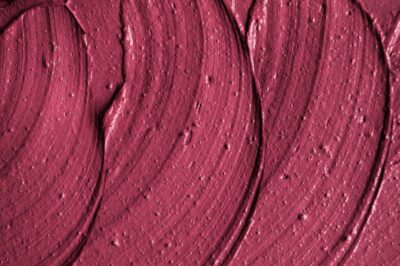Isn’t it wonderful how many organic products are out there these days? It doesn’t matter if you’re buying coffee or shampoo; it seems as if there’s an organic version of almost any product you can think of.
It’s such a relief; finding organic goods in your local store used to be as difficult as finding a stray hairpin in your handbag… nearly impossible!
This surge of organic products is due to the fact that so many of us choosy consumers are demanding them, and that’s a great thing. However, there is a downside to this organic craze: more often than you might realize, several products that say ‘organic’ on the label really aren’t at all.
How does this even happen?
It’s not cynical to realize that most skin care companies are primarily interested in making as much profit as possible. As such, quite a few do the bare minimum to pass their products off as organic.
It’s misleading, and it’s no good for you. It’s one thing not to get what you paid for; it’s even worse when you pay a lot more for it!
This ugly deception came to the surface in late 2011 when the Center for Environmental Health filed a lawsuit against over 20 cosmetics companies for falsely labeling their products as organic. The lawsuit claimed that many popular organic brands were offering “organic” products that merely contained small amounts of organic ingredients alongside several conventional ingredients. Some of them didn’t contain any organic ingredients at all.
In California – where the suit was filed – the law states that any personal care product labeled as organic must contain at least 70% organic ingredients, and CEH’s research proved that some of the biggest “organic” brands in the industry were failing to meet that standard!
That should make you angry. Furthermore, there’s no telling which companies continue to sneak under the radar offering products that are barely organic or simply aren’t organic at all.
How to Protect Yourself from this Grand Organic Hoax
1—Check for an organic certification stamp or USDA organic labeling
Unlike the food industry, which is subject to stricter rules and enforcement, the skin care industry is a regulation free-for-all. Some more ethical companies put their best foot forward however, and will have their products organically certified to provide you with some peace of mind. As such, it’s usually a great sign if there’s a certification stamp on the label. Most reassuring of all is the presence of an USDA organic stamp, although that’s more common on food items than skin care products.
2—Make sure the organic ingredients are ranked high on the label
One requirement of the skin care industry is that ingredients in your personal care products must be listed in order of concentration. This gives you a great way to tell just how organic your product really is. Before you buy any product, flip it around and take a look at the label; if the organic ingredients are near the end of the list, that’s a sign that they don’t make up much of what’s in the bottle. Leave that impostor product on the shelf!
3—Scan for harmful ingredients
Something you have to bear in mind is that the presence of organic ingredients in a product doesn’t mean it isn’t full of harmful ones as well. Who cares if your facial mask is made with organic avocados; if it’s also chock full of synthetic preservatives that are potential carcinogens then it’s really no good!
You’ll also want to be especially discerning about products that claim to be “natural” or even “all natural.”
The terms are unverified and technically mean nothing at all.
Your best bet is to cozy up to companies like us, that acknowledge the widespread deceit in the industry and make it their mission to provide healthy, well-researched, and truly organic alternatives.








Hi and thank you for offering a safe line of skin products. I’ d like to suggest that the anti-aging serum and oil could be bought in a larger size to save in containers, expedition charges, CO2 and possibly in the overall price (for ex. a bigger size normally is more economical than two smaller ones).
Thank you for listening,
Margarita Giustino
I LOVE, LOVE, LOVE AMG products and the personal service has been of the best and warmest I have ever received, THANK YOU!!!
I am praying for your line to soon carry a chap stick and a body moisturizer that doesn’t have to be refrigerated. I even thought of a jingle…..”Christmas is coming, the goose is getting fat, please put a chap stick on your sale rack”! LOL, <3
Also, wondering if you might suggest a cosmetic line that you trust?
HUGS!
It would have been helpful if the article had listed some of these organic “imposters” so that we could avoid them.
I have a suggestion, I purchased the eye cream and it is VERY hard to get out of the bottle. I have to take the top off and dip the access straw in and get the product from that straw.
I would like to see this product in a “jar” type container that you could actually get every drop out when finished. I feel like i am losing a LOT of product due to not being able to “pour” or get out of the bottle.
Thanks for your consideration!
Well, I trust YOUR products! xoxo
Hi Ann Marie
Would you be able to advise on any safe waterproof mascara and eyeliner brands?
Thank you Loads
Yoges
The Environmental Working Group created a wallet size quick tips for Safer Cosmetics… it is a guide to navigating personal care product labels. They offer a safety rating for 1,000 products list of ingredients with safety concerns
ewg.org/skindeep
I am just discovering how much deceit there is in both food and cosmetics. It is shocking. Thanks for the information!